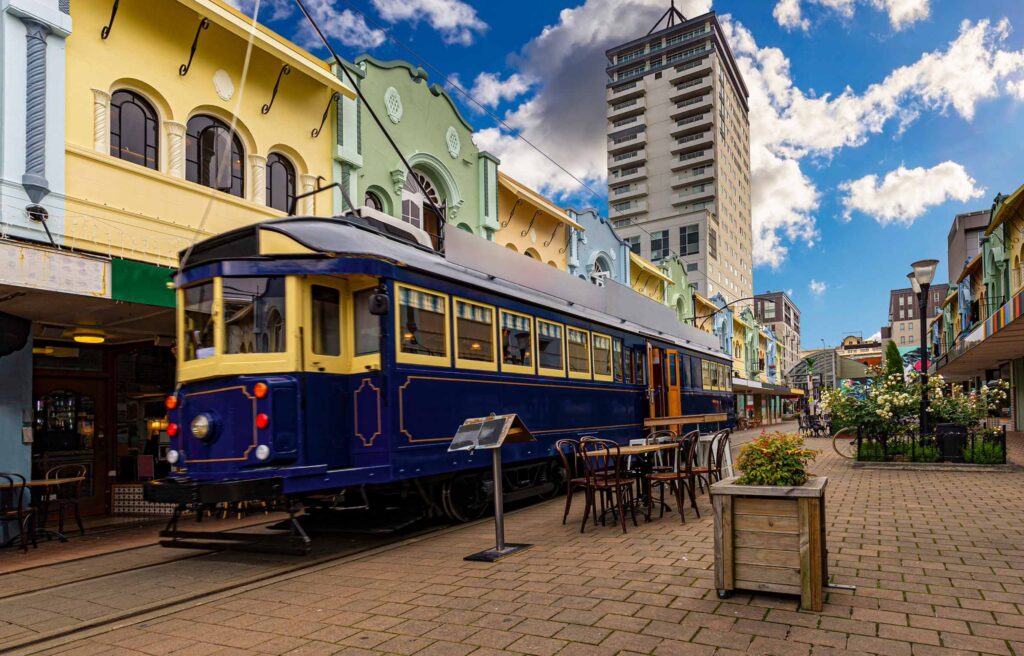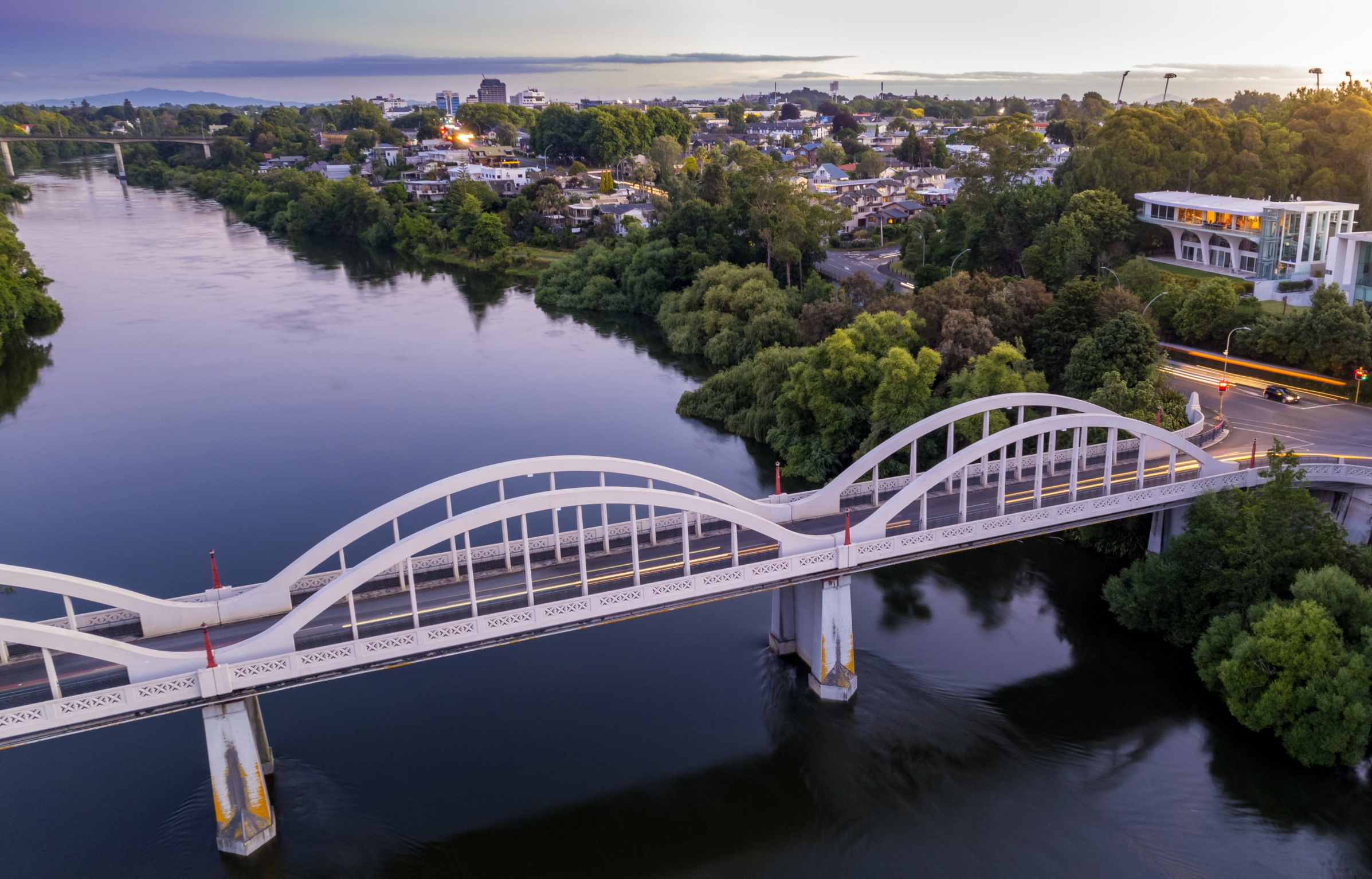Relocating abroad is a thrilling journey with its share of complexities. It is especially true when it involves moving halfway across the world. If you’re considering moving to New Zealand from America, you’re not alone. Known for its stunning landscapes, friendly locals, and high quality of life, it offers an incredible opportunity for a fresh start. With 5.2 million people, New Zealand boasts vast open spaces and stunning natural beauty.
In 2026, New Zealand is ranked as the 3rd most peaceful country globally according to the Global Peace Index by the Institute for Economics & Peace. This high ranking reflects the country’s strict gun regulations, low crime and terrorism rates, and a strong community spirit influenced by Maori culture.
Despite rising global conflicts, New Zealand remains a safe and stable environment for residents, underscoring its reputation as one of the world’s safest nations (visionofhumanity.org).
Why Move to New Zealand?
New Zealand offers an unparalleled quality of life, attracting people with its pristine natural beauty, vibrant cities, and welcoming culture. Known for its low crime rates, world-class healthcare, and work-life balance, it provides a lifestyle many Americans aspire to enjoy. The country’s focus on sustainability and outdoor recreation appeals to those seeking a healthier, more fulfilling way of living.
Its work-life balance is legendary, with the average workweek spanning just 37 hours. This approach allows ample time for outdoor recreation, such as hiking, skiing, and water sports, which are integral to the Kiwi lifestyle. Approximately 33% of the country’s land is protected as national parks or reserves, making it a haven for nature enthusiasts.
Additionally, its renewable energy initiatives provide over 80% of the nation’s electricity. It highlights its commitment to sustainability, attracting those passionate about eco-conscious living.

Visa and Residency Requirements
Knowing its visa and residency options is crucial. Popular visas include the Skilled Migrant Category Resident Visa for professionals, the Working Holiday Visa for younger travelers, and the Entrepreneur Work Visa for business owners. The Skilled Migrant Visa, for example, uses a points-based system, requiring a minimum of 160 points based on factors such as age, qualifications, and work experience.
The Working Holiday Visa is available for those aged 18-30 and allows a stay of up to 12 months, attracting over 50,000 applicants annually from various countries. The Entrepreneur Work Visa, designed for business owners, requires an investment of at least NZD 100,000 and a detailed business plan showcasing its benefits to the local economy.
Permanent residency pathways often involve meeting employment, education, or family connection criteria. For instance, nearly 15% of permanent residents acquire their status through family sponsorship. In 2022 alone, over 47,000 individuals transitioned to permanent residency, highlighting the nation’s welcoming stance toward migrants.
Preparing accurate documentation, such as health certificates, police clearances, and proof of funds. Consulting with registered immigration advisors can streamline the process and improve approval chances, especially for complex cases.
An Overview of Living Expenses
The cost of living in New Zealand varies depending on your chosen city or region. Urban areas like Auckland and Wellington are more expensive, especially for housing, where monthly rents for a one-bedroom apartment in the city centre average around NZD 2,000 (USD 1,200). In smaller towns like Dunedin or Invercargill, you can find similar accommodations for NZD 1,200 (USD 720) or less.
Groceries in New Zealand can also be pricier compared to the US. For instance, a loaf of bread costs approximately NZD 3.50 (USD 2.10), and a litre of milk averages NZD 2.50 (USD 1.50). Dining out is a popular choice but comes with higher costs; a meal for two at a mid-range restaurant can be around NZD 80 (USD 48).
Transportation expenses depend on your location. Public transport in cities like Wellington and Auckland is reliable, with monthly passes costing approximately NZD 150-200 (USD 90-120). However, car ownership has become essential in rural areas, with petrol prices hovering around NZD 3.00 (USD 1.80) per litre.
Healthcare and education costs, while subsidized, should also factor into your budget. As per the report CommonWealth Fund, co-payments for doctor visits average NZD 50-70 (USD 30-42), though children under 14 often receive free care under public healthcare plans.
Planning your finances is crucial. Create a budget for accommodation, daily expenses, and relocation costs. Online tools like Numbeo and local forums provide up-to-date insights into living expenses, helping you prepare effectively.

Related – 10 Must-Have Budgeting and Expense Tracking Apps for Digital Nomads
Choosing the Best Place to Live
The next critical step in moving to New Zealand from America involves finding suitable housing. New Zealand offers diverse options, from city apartments to countryside homes. Popular cities like Auckland, Wellington, and Christchurch cater to various lifestyles and budgets. However, housing demand in these urban areas can be high, so starting your search is advisable. Also, Relo.AI helps you find the best place to live in New Zealand.
Websites like Trade Me Property and Realestate.co.nz provide comprehensive listings for rentals and purchases. Temporary accommodations, such as Airbnb or serviced apartments, offer flexibility while you explore permanent options. Be prepared to provide references and financial proof, as landlords often require them during the application process.
According to Simple New Zealand, when planning your move to New Zealand, it’s essential to consider the varying housing costs across different regions. For example, as of 2024, the average weekly rent in Auckland is approximately NZD 600, while in Wellington, it is around NZD 620. In contrast, regions like Southland and the West Coast offer more affordable options, with average weekly rents of NZD 390 and NZD 380, respectively.
These figures highlight the importance of thorough research and budgeting to ensure a comfortable transition to your new home in New Zealand.
Employment Opportunities for Career Growth
Securing a job is often crucial for visa approval and settling into life in New Zealand. Industries such as healthcare, IT, agriculture, and construction are experiencing labor shortages and actively recruiting skilled workers. According to New Zealand’s Ministry of Business, Innovation, and Employment (MBIE), healthcare professionals, including nurses and aged care workers, are among the most in-demand.
Job vacancies in this sector have increased by 15% year-on-year. Similarly, the IT sector has seen a 12% rise in demand for software developers and IT specialists in 2026.
The best websites to find jobs are Seek, Trade Me Jobs, and Careers.govt.nz, which are excellent platforms to explore opportunities.
As of 2026, Seek reported competitive average annual salaries across key industries –
| Industry | Average Annual Salary (NZD) | Average Annual Salary (USD) | Job Demand Increase |
| Healthcare | 85,000 | 51,000 | 15% |
| Information Technology | 90,000 | 54,000 | 12% |
| Construction | 75,000 | 45,000 | 10% |
| Agriculture | 60,000 | 36,000 | 8% |
Networking plays a significant role in the New Zealand job market. Attend industry events, join online forums, and connect with potential employers on LinkedIn. You can learn about the jobs that offer relocation assistance. Once you secure a job offer, meeting visa requirements and establishing a stable foundation for your move is easier.
Also read – The 35 Best Sites for Find Remote Work Jobs Online in 2026
Knowing the Healthcare Options
New Zealand’s healthcare system blends public services with private insurance options. Public healthcare, funded by taxes, provides essential treatments and is accessible to eligible residents and visa holders. However, non-urgent care in the public system often involves long wait times.
Many expats opt for private insurance with providers like Southern Cross or Nib, offering faster access to specialists and private hospital care. Premiums typically range from NZD 1,000 to NZD 3,500 annually, depending on the level of coverage. Learn reasons to buy travel insurance.
American citizens must secure health insurance before relocating because the public system excludes temporary visa holders until they meet eligibility criteria. Coverage for dental and vision care is limited under the public system, often requiring supplemental policies or out-of-pocket expenses.
General practitioners (GPs) act as the primary point of contact, with visit costs averaging NZD 50-70 (USD 30-42). For families, children under 14 often receive free GP care, making the system more accessible for young families.
Diverse Education Options for Families
Knowing the education system is essential for families moving to New Zealand from America to ensure a smooth transition. The country offers free state education for residents’ children, focusing on a balanced curriculum of academics, sports, and extracurriculars. Additionally, private and integrated schools provide alternative options, often featuring religious or specialized programs, with annual fees ranging from NZD 5,000 to NZD 20,000.
Furthermore, the school year in New Zealand runs from January to December, differing from the American system. To simplify enrollment, researching and contacting schools in your area is recommended. Websites like Education Counts and local council pages offer valuable insights into school performance, resources, and rankings.
Higher education in New Zealand is equally noteworthy, with world-class institutions like the University of Auckland, Victoria University of Wellington, and the University of Otago attracting students worldwide. These universities are renowned for their business, medicine, and engineering excellence. International tuition fees typically range from NZD 20,000 to NZD 40,000 annually, depending on the course of study.
They provide inclusive programs for families seeking specialized education supported by resource teachers and tailored relocation assistance, ensuring all children receive the support they need. Exploring these options ensures your children’s academic success and smooth integration.
If you are a student and relocating to New Zealand, read our complete guide about student relocation. It will help you make your relocation decisions easily.

Bridging Cultural Differences and Adapting
Settling into life in New Zealand goes beyond logistical planning; it requires embracing the local culture and lifestyle. The Kiwi way of life emphasizes outdoor activities, community involvement, and sustainability. From scenic hikes to lively rugby matches, activities abound to immerse yourself. Celebrating national events like Waitangi Day, commemorating the signing of New Zealand’s founding treaty.
Familiarizing yourself with cultural nuances enhances the integration experience. Maori traditions, such as the welcoming haka or the symbolic hongi greeting, play a vital role in New Zealand’s identity. Learning phrases like “Kia ora” (hello) and knowing concepts like “manaakitanga” (hospitality) and “kaitiakitanga” (guardianship) shows respect.
These efforts help build deeper connections with locals. So, read why cross-cultural training matters in relocation.
Additionally, adapting to the slower, more relaxed Kiwi pace of life may take time for those used to busier environments. Patience and an open mind will help you embrace the differences and thrive in your new home. Engaging with the culture and building relationships can create a fulfilling and enriching life in New Zealand.
Transportation and Getting Around
New Zealand offers a well-structured transportation system with reliable and efficient public options, particularly in urban areas. Cities like Auckland, Wellington, and Christchurch have extensive bus networks, with Auckland’s AT Metro and Wellington’s Metlink providing comprehensive coverage for commuters. Trains, while limited to specific regions like Auckland and Wellington, serve as an additional option for urban travel.
Using contactless payment cards, such as the AT HOP card in Auckland or the Snapper card in Wellington, makes traveling on public transport convenient and often more affordable. Owning a car is almost essential for those exploring beyond urban areas. Many of New Zealand’s most iconic attractions, such as Milford Sound, Mount Cook, and remote beaches, are inaccessible by public transportation.
Petrol prices currently average around NZD 3.00 (USD 1.80) per litre, so factor them into your transportation costs. Cycling and walking are popular, especially in smaller towns and cities. For regional and inter-island travel, New Zealand provides convenient options. Domestic flights, operated by budget airlines like Air New Zealand and Jetstar, connect major cities and regional hubs efficiently.
Ferry services, including the Interislander and Bluebridge, provide scenic and practical routes between the North and South Islands. These services make it easy to experience the country’s diverse landscapes.
With diverse transportation options, it combines practicality and adventure, making navigating cities, rural areas, and islands easy.

Tax and Financial Obligations Overview
Knowing its financial system is vital for a smooth transition. Setting up a local bank account should be a priority. Major banks like ANZ, BNZ, and ASB offer accounts tailored to newcomers. Opening an account requires proof of identity, an address, and a visa.
Consider the currency exchange rates and transfer services when moving funds from the US to New Zealand. Companies like Wise and OFX offer competitive rates and lower fees than traditional banks, making them popular choices for international money transfers.
Besides, familiarize yourself with New Zealand’s tax system to avoid surprises. Residents and eligible visa holders must file annual income tax returns with the Inland Revenue Department (IRD).
The tax system includes a progressive income tax structure –
- 10.5% on income up to NZD 14,000
- 17.5% on income between NZD 14,001 and NZD 48,000
- 30% on income between NZD 48,001 and NZD 70,000
- 33% on income over NZD 70,000
If you’re earning income from overseas sources, be aware of potential tax obligations in both countries. The US and New Zealand lack a double taxation agreement, so consulting a tax advisor is advised for compliance.
You may also qualify for various deductions, such as expenses related to self-employment, donations to registered charities, or certain education costs.
Recommended read – 10 Best Business Bank Accounts with No Credit Check for Digital Nomads
Building a Strong Social Network with Locals
Moving to a new country can feel isolating initially. Building social connections is integral to feeling at home when moving to New Zealand from America. Joining local clubs, attending community events, and participating in sports leagues or hobby groups are excellent ways to meet new people and establish friendships. Attending cultural festivals helps connect with locals and learn Kiwi traditions.
Moreover, volunteering with local organizations or charities fosters a sense of belonging and helps you seamlessly integrate into your new community. Expert networks, such as InterNations, offer opportunities to meet other Americans living in New Zealand. Engaging with local activities and cultural traditions fosters meaningful relationships and enhances your sense of belonging.
The Common Challenges to Expect Ahead
Relocating to New Zealand, while rewarding, comes with its challenges. Homesickness is common, especially for those leaving close-knit communities in America, but staying connected through video calls and visits can help. Adjusting to New Zealand’s laid-back lifestyle and informal social norms, such as emphasizing teamwork and humility, may also take time.
Adapting to a slower pace of life, particularly in smaller towns, and navigating the visa process or starting a new job requires patience and persistence. While English is the primary language, local slang and accents may take some time. For example, phrases like “sweet as” (great) and “no worries” (it’s okay) are unique to the Kiwi culture.
Other challenges include adjusting to regional differences in the cost of living and understanding the healthcare and education systems. Preparing for these hurdles with research, an open mind, and a proactive attitude can ensure a smoother transition and enrich your experience in New Zealand.
Expert Help for Every Step of Your New Zealand Move
Relo.AI simplifies New Zealand’s move by providing tailored solutions for individuals and families. From securing the correct visa to finding the perfect housing in your new community, we ensure a seamless transition at every step.
Our network of experts helps you navigate New Zealand’s immigration requirements, understand Kiwi culture, and manage the logistics of your move. We also connect you with local resources, including job opportunities, community programs, and integration support, to help you feel at home in New Zealand.
With relocation checklists and step-by-step guidance, we simplify the process, letting you focus on moving to New Zealand from America.
Book a session with us today, and let’s make your move to New Zealand a success!
Fill out this form, and we’ll get in touch soon.
Wrap Things Up!
Moving to New Zealand from America is a significant but rewarding step. These practical steps will streamline the process and set you up for success in your new home. From securing the correct visa to adopting Kiwi culture, your journey to New Zealand can be exciting and manageable. With careful planning and the right resources, you can quickly settle in.
Start your adventure today and explore all the opportunities New Zealand has to offer!











